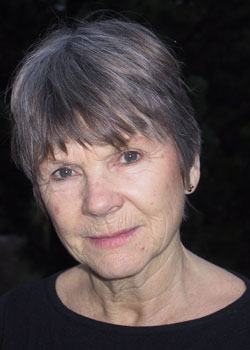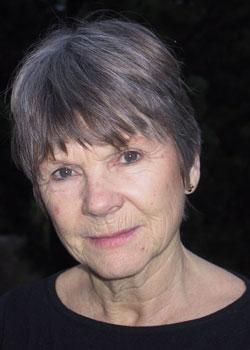New Nordic research policies
A new Nordic network for research policy is currently under way. The initiators hope that the network can contribute to promote gender perspectives in research on national, Nordic, and European level.

"When we meet in a Nordic context we discover that we face many of the same challenges in terms of promoting gender in research. It will therefore be interesting to have a common forum where we can exchange experiences and engage in cooperative projects."
This statement comes from Rannveig Dahle, the chair of the Association for Women's studies and Gender research in Norway (Foreningen for kvinne- og kjønnsforskning, FOKK). She was one of the participants at a Nordic meeting on research policies and gender research in December 2006 at the Swedish Secretariat for Gender Research in Gothenburg. Here the participants came to an agreement of working toward the establishment of a network for research policy.
What works
Rannveig Dahle has great faith in formalizing cooperation on a Nordic level. She is concerned that the units and organizations that work with gender research must also work on research policies, and hopes that a network can be of strength toward this effort.
"It is interesting for us to know how they work with research policies in the other countries, such as how they address research notices and establish gender research programs. We need to know what works for them, and what experiences they have."
"In addition, we have a series of common challenges where we also can learn from each other. I am thinking in particular about the work of promoting gender perspectives in education. In Norway, we have the entirety of college sector where gender is essentially a foreign word. And this is despite that the majority of students in the most common occupationally-directed studies are women. This is a situation that is recognized in the other Nordic countries, so I hope that we can work together on these issues."
Nordic voice
Dahle also sees a need for promoting gender research on a Nordic level, among other things in relation to research projects under NordForsk, an independent institution operating under the Nordic Council of Ministers for Education and Research. NordForsk has the responsibility for cooperation within research and research training. In addition she believes that a cooperative network can push the various gender research milieus to become actors on a European level.
"It is good to have a forum where we can discuss how we can contribute to promote gender research in an EU-context. Maybe it will be wise to speak with a common Nordic voice on occasion? This year, among other things, the EU will establish the European Institute for Gender Equality in Vilnius. It is important to be active users of the institute, as well as to work toward influencing what the institute will be and how it will work."
Changed research policies
Solveig Bergman, the head of the Nordic Institute for Women’s Studies and Gender Research (NIKK) who expressed requests for Nordic research policy cooperation last year, has also been concerned with the European focus of such a network.
"At NIKK we have long seen the need to gather actors that work with women in research and gender research for a Nordic discussion. This is about how we relate ourselves to actors within the EU, and it is about how we can work together on a Nordic level," is what she said to the Resource Bank for Gender Mainstreaming in the fall of 2006.
Bergman was also concerned that changes in research policy strengthen the need for a network.
"There is a lot currently happening in terms of new research with large grants, umbrella projects, and focus on so-called “excellent research.” It is easy for gender research to fall between the gaps, unless we change our previous strategies. That is why we have to work with research policy, and gender researchers have to see that this is not boring, but very important."
Not equality
Exactly how this new network will work is still unclear. Rannveig Dahle from FOKK underscores that the work is just at the starting line. "I think we can say that we are currently on the level of intentions, and the next meetings have to put what we want this to be into concrete terms."
She adds that research cooperation and research policy combined with gender research are becoming the two pillars in the cooperation.
"In addition to working with research policy, the network should be a place to promote researchers’ networks and research cooperation. And it should be a place for the coordination of work related to the Nordic and the national journals, cooperation regarding publishing practices, and the like."
"It is all about the substance in research. I believe that the work related to promoting gender equality in research will not receive a central position in the network; that something others will have to work on," she says.
Nordic conference
The new network will be an open forum for all organizations and milieus in the Nordic countries that are interested in working with and promoting gender research on national, Nordic, or European level, and Dahle emphasizes that they welcome input from people who have thoughts on how the network should work.
Of concrete plans for the future, there is a research policy conference in Norway during the spring of 2008, and a possible seminar in Brussels for the presentation of Nordic gender research.
Translated by Nicholas Vikør Green, KILDEN
